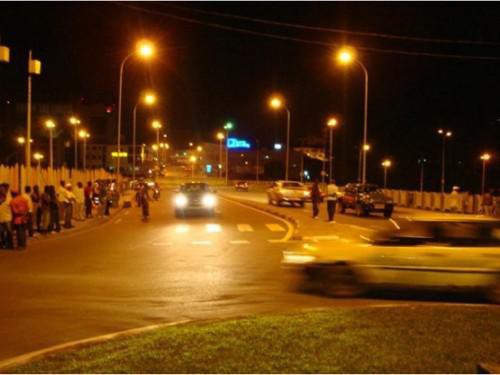
Cameroon is set to transform its urban lighting landscape with the installation of 100,000 energy-efficient LED luminaires in three major cities, a move projected to save 4 billion CFA francs annually and reduce power consumption by 15 megawatts.
The groundbreaking agreement was signed on 7 August 2025 between Minister of Energy Gaston Eloundou Essomba and Spanish company Salvi Lighting, marking a major technological leap in the country’s public lighting sector.
“This will result in financial savings on public lighting bills of at least 4 billion francs per year,” Minister Eloundou Essomba said during the ceremony, highlighting the economic benefits of this modernisation.
The LED fixtures, each rated at 250 watts, will be primarily installed in Yaoundé, Douala, and Bafoussam. In areas lacking grid electricity, innovative solar streetlights will complement the LED system. The deployment will be managed remotely via the Smartec system, enabling real-time control and maintenance.
“This project should enable development towards intelligent modernization,” noted Spanish Ambassador Don Juan Pedro Pérez Gómez Delaunay, emphasising how the initiative fits into Cameroon’s broader national energy transition.
The partnership also promotes technology transfer to local companies, with Salvi Lighting’s president Javier Elizalde expressing honour at contributing to Cameroon’s infrastructure development.
“This is a sustainable, economically viable, and environmentally friendly technology,” Ambassador Pérez Gómez added, noting its concrete role in combating climate change while enhancing urban safety by eliminating dark areas in cities.
Salvi Lighting’s internationally recognised expertise underpins the quality and reliability of the upcoming installations, and the 30-day timeline for presenting an implementation schedule signals the urgency of the project.
This public-private collaboration could serve as a blueprint for future infrastructure projects in Cameroon, marking a pivotal step towards smarter, greener cities.
Will this initiative truly reshape Cameroon’s urban environment and energy consumption patterns? The coming months will tell.



